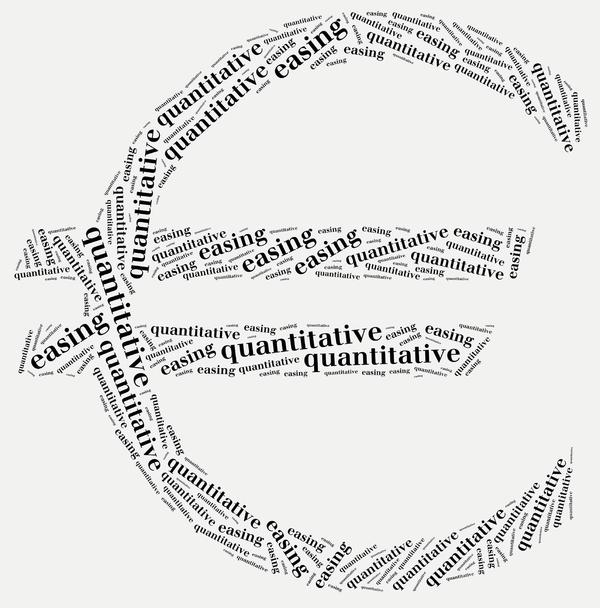Euro QE is here

A free daily email with the biggest news stories of the day – and the best features from TheWeek.com
You are now subscribed
Your newsletter sign-up was successful
The European economy is in an epic depression. With industrial production stagnant, mass unemployment showing no signs of abating, and inflation on a severely downward trend, economists such as The New York Times' Paul Krugman are concerned that Europe is becoming like Japan, the former second-largest economy in the world, which has spent more than 20 years in a deflationary depression.
But now the European Central Bank — which has a mandate of 2 percent inflation per year, something that even with interest rates close to zero it has not been achieving — is finally going to do something about it.
ECB chief Mario Draghi announced today that starting in October, the ECB would be purchasing asset-backed securities in order to try and reinvigorate the European economy. The ECB may not be calling it quantitative easing (QE), because it is not quite the same as what the Fed has been doing — the Fed's QE plan involves buying both asset-backed securities as well as U.S. government debt in order to buoy the economy— but it is a start.
The Week
Escape your echo chamber. Get the facts behind the news, plus analysis from multiple perspectives.

Sign up for The Week's Free Newsletters
From our morning news briefing to a weekly Good News Newsletter, get the best of The Week delivered directly to your inbox.
From our morning news briefing to a weekly Good News Newsletter, get the best of The Week delivered directly to your inbox.
The real question is: why now? After all, earlier in the summer Draghi was quoted as saying that he believed that the European recovery remained "on track."
The answer may be that Germany, the economic superpower at the heart of Europe — which is now on the brink of a recession — has finally been shaken. Germany has been strongly opposed to quantitative easing while other eurozone economies such as Spain, Greece, Italy, and Portugal struggled, with Chancellor Merkel remaining adamant that structural reforms, such as government spending cuts, are the right answer for those countries' woes. But now that the contagion has spread to Germany, things are different.
A free daily email with the biggest news stories of the day – and the best features from TheWeek.com
John Aziz is the economics and business correspondent at TheWeek.com. He is also an associate editor at Pieria.co.uk. Previously his work has appeared on Business Insider, Zero Hedge, and Noahpinion.
-
 6 of the world’s most accessible destinations
6 of the world’s most accessible destinationsThe Week Recommends Experience all of Berlin, Singapore and Sydney
-
 How the FCC’s ‘equal time’ rule works
How the FCC’s ‘equal time’ rule worksIn the Spotlight The law is at the heart of the Colbert-CBS conflict
-
 What is the endgame in the DHS shutdown?
What is the endgame in the DHS shutdown?Today’s Big Question Democrats want to rein in ICE’s immigration crackdown
-
 TikTok secures deal to remain in US
TikTok secures deal to remain in USSpeed Read ByteDance will form a US version of the popular video-sharing platform
-
 Unemployment rate ticks up amid fall job losses
Unemployment rate ticks up amid fall job lossesSpeed Read Data released by the Commerce Department indicates ‘one of the weakest American labor markets in years’
-
 US mints final penny after 232-year run
US mints final penny after 232-year runSpeed Read Production of the one-cent coin has ended
-
 Warner Bros. explores sale amid Paramount bids
Warner Bros. explores sale amid Paramount bidsSpeed Read The media giant, home to HBO and DC Studios, has received interest from multiple buying parties
-
 Gold tops $4K per ounce, signaling financial unease
Gold tops $4K per ounce, signaling financial uneaseSpeed Read Investors are worried about President Donald Trump’s trade war
-
 Electronic Arts to go private in record $55B deal
Electronic Arts to go private in record $55B dealspeed read The video game giant is behind ‘The Sims’ and ‘Madden NFL’
-
 New York court tosses Trump's $500M fraud fine
New York court tosses Trump's $500M fraud fineSpeed Read A divided appeals court threw out a hefty penalty against President Trump for fraudulently inflating his wealth
-
 Trump said to seek government stake in Intel
Trump said to seek government stake in IntelSpeed Read The president and Intel CEO Lip-Bu Tan reportedly discussed the proposal at a recent meeting